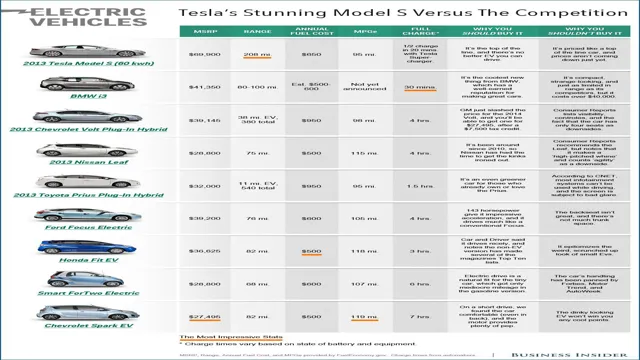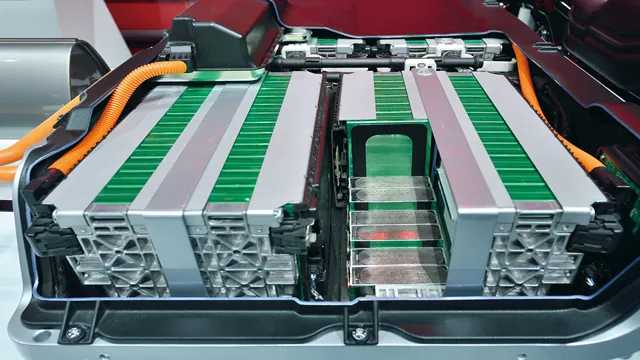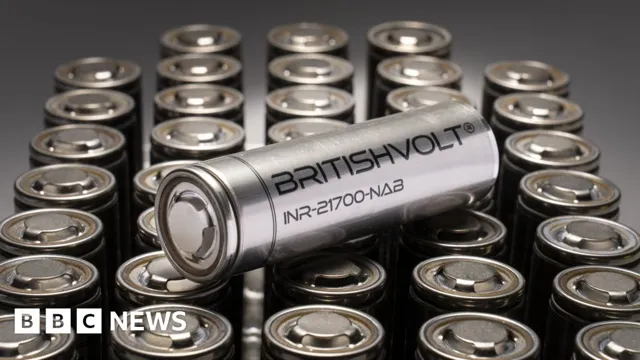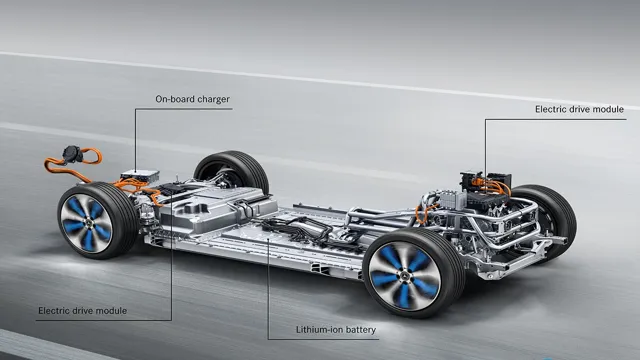Decoding the Average Battery Size of an Electric Car: How Far Can You Go on a Single Charge?
Have you ever wondered how manufacturers determine the size of the battery for an electric car? Well, you’re not alone – many people are curious about the factors that contribute to the battery size in electric cars. Electric cars provide many benefits such as fewer emissions and increased fuel efficiency, but one of the most crucial components that impacts their overall performance is their battery. The size of the battery in an electric car is directly related to the car’s range, power, and overall efficiency.
In this blog, we’ll explore the factors that influence car manufacturers in determining the battery size and how this impacts the performance of electric cars. So, join us as we deep-dive into the world of electric car battery size and learn about the science and engineering behind these impressive machines.
Overview of Electric Car Batteries
The average battery size of an electric car varies greatly between models. However, the most common battery capacity is around 60 to 85 kWh. This means that a typical electric car can travel approximately 200 to 300 miles on a single charge, depending on driving conditions and other variables.
It’s important to keep in mind that the battery size is just one factor in determining an electric vehicle’s range. Other factors include the car’s weight, aerodynamics, and energy efficiency. That being said, advancements in battery technology have led to higher energy densities, meaning that future electric cars may be able to travel even farther on a single charge.
This will make them more practical for long-distance travel and further reduce range anxiety for consumers.
Types of Electric Car Batteries
Electric car batteries come in different types to suit different needs and preferences of car buyers. The most common types of electric car batteries that you may encounter in the market include lithium-ion, nickel-metal hydride, and lead-acid batteries. Lithium-ion batteries are known for their high energy density and longer lifespan.
They are also lighter and more compact compared to other types of batteries, making them a popular choice for electric cars. On the other hand, nickel-metal hydride batteries are cheaper and have a better ability to handle high temperatures. Lead-acid batteries, which are commonly used in traditional gasoline cars, are also used in hybrid electric cars.
They may be the cheapest type of battery but have a shorter lifespan and lower energy density. Therefore, it is important to understand the different types of electric car batteries available when choosing an electric car that suits your needs.
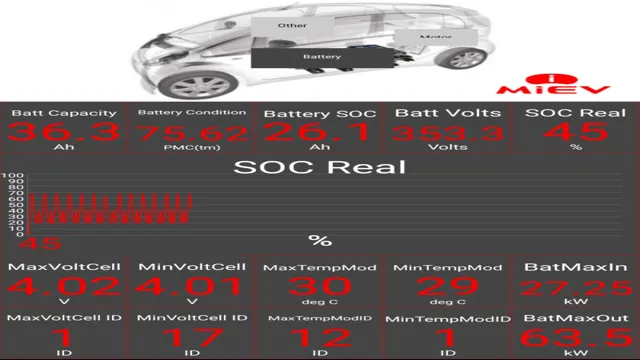
Factors Affecting Battery Size
Electric car batteries are one of the most significant components of an electric vehicle. They are responsible for powering the car, and their size affects the distance the car can travel on a single charge. The battery size of an electric car depends on various factors, including the car’s weight, the size of the motor, and the desired range of the car.
A heavier car with a larger motor will require a more massive battery to travel the same distance compared to a smaller car with a smaller engine. Additionally, the desired range of the car affects the battery size since a car with a longer range will require a larger battery to accomplish it. Car manufacturers are continually working to improve battery technology to increase performance, range, and durability of electric car batteries.
As a result, electric vehicles are becoming more popular, and traditional gasoline-powered vehicles may soon be a thing of the past.
Average Electric Car Battery Size
When it comes to the average battery size of an electric car, it varies greatly depending on the make and model of the vehicle. However, the average battery size used in current electric cars typically ranges from 40 to 100 kilowatt-hours (kWh). This amount allows for a range of approximately 100 to 400 miles on a single charge, depending on factors such as driving conditions, weather, and driving habits.
For example, Tesla’s highly popular Model S has a battery size of 100 kWh, allowing for a range of up to 402 miles on a single charge. On the other hand, the Nissan Leaf has a battery size of 40 kWh, allowing for a range of up to 150 miles on a single charge. As technologies improve, we can expect to see larger batteries being used in electric vehicles, thus increasing their range and further reducing the need for fossil fuels.
Comparison of Popular Electric Car Models
When it comes to electric cars, battery size is an important consideration for many buyers. The average electric car battery size varies depending on the make and model, but generally falls between 60 and 100 kilowatt-hours (kWh). For example, the Tesla Model S has a battery size of 100 kWh while the Nissan Leaf has a battery size of 40 kWh.
A larger battery size typically means longer driving ranges, while a smaller battery size may be more affordable or better suited for city driving. It’s important to note that battery size isn’t the only factor that affects a car’s driving range; factors such as driving style, weather conditions, and terrain also play a role. So when comparing electric cars, it’s important to consider all of these factors in addition to battery size.
Trends in Electric Car Battery Size
As electric cars become more popular, there has been a steady increase in the average battery size used to power them. In the early days of electric cars, batteries ranged from 20-30 kilowatt-hours (kWh), which limited their range to around 80-100 miles. However, with advances in technology, the average battery size has grown significantly, with newer models featuring batteries of 60-100 kWh or more, capable of driving over 300 miles on a single charge.
This increase in battery capacity has made electric cars more appealing to drivers, as they no longer have to worry about running out of power on longer trips. Additionally, as battery costs continue to decrease, it is likely that we will see even larger batteries in the future, pushing the limits of electric vehicle range even further.
Future of Electric Car Batteries
When it comes to electric car batteries, there are a few key factors that come into play, such as the size of the battery itself. On average, electric car batteries range from around 40 kWh (kilowatt-hours) to over 100 kWh, with larger batteries typically being found in luxury electric models. But as technology continues to advance, many experts predict that the average electric car battery size will only continue to grow, allowing for longer driving ranges and even faster charging times.
This could have a major impact on the future of the automotive industry, as more and more people begin to make the switch to electric vehicles for their daily transportation needs. But as with any technological innovation, there are also potential challenges and limitations that will need to be addressed in order to fully realize the potential of this exciting new technology. Nonetheless, the future is certainly bright for electric car batteries, and there’s no telling what kind of advancements or breakthroughs we might see in the years to come.
Conclusion
In conclusion, the average battery size of an electric car is like a heart in a body – providing the energy needed for movement. Just like how each person’s heart size varies, electric car battery sizes vary depending on the needs and preferences of the vehicle. But never fear, just like a healthy heart contributes to a healthy life, a well-sized battery ensures that the electric car can travel long distances with ease and efficiency.
So, let’s raise a metaphorical glass to the humble battery – the unsung hero of the electric car. Cheers to functioning hearts and reliable batteries!”
FAQs
What is the average battery size of an electric car?
The average battery size of an electric car is around 60 kWh, although some models may have larger or smaller battery sizes depending on their intended use and price point.
How does the battery size affect the driving range of an electric car?
Generally, a larger battery size will result in a longer driving range for an electric car. However, factors such as driving style, weather conditions, and terrain can also impact overall range.
Are larger battery sizes always better for electric cars?
Not necessarily. While larger battery sizes may provide longer range, they also come with a higher cost and weight. For some drivers, a smaller battery may be sufficient for their daily commute and driving needs.
Can the battery size be upgraded in an electric car?
It depends on the make and model of the car. Some manufacturers offer options for upgrading the battery size, while in other cases, replacing the battery may not be feasible or cost-effective. It’s important to research the options specific to your vehicle when considering a battery upgrade.
